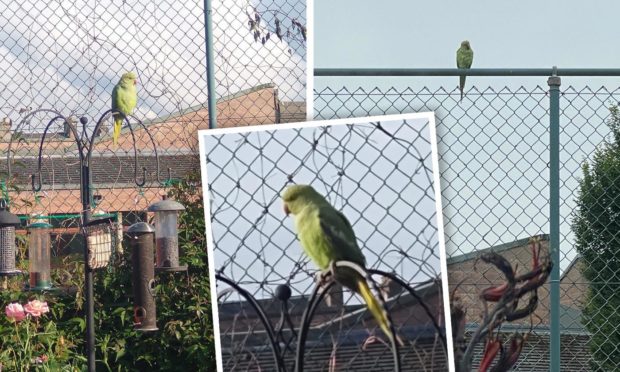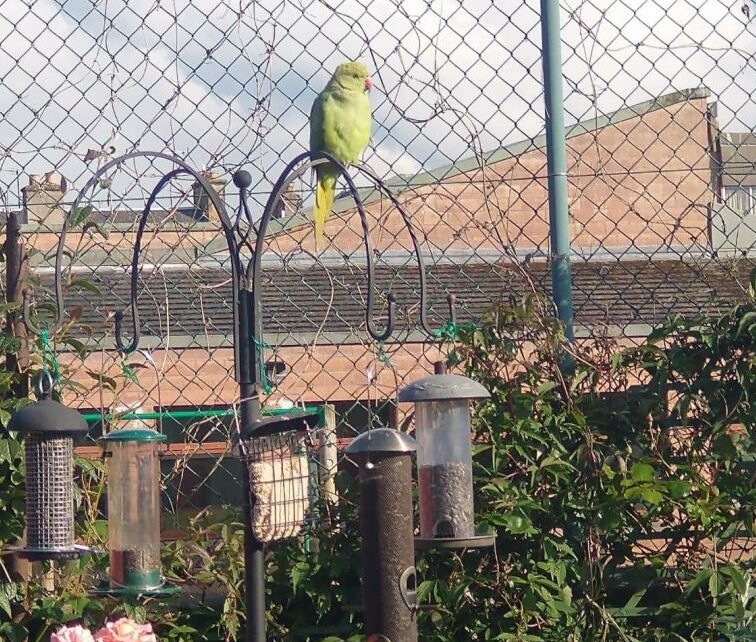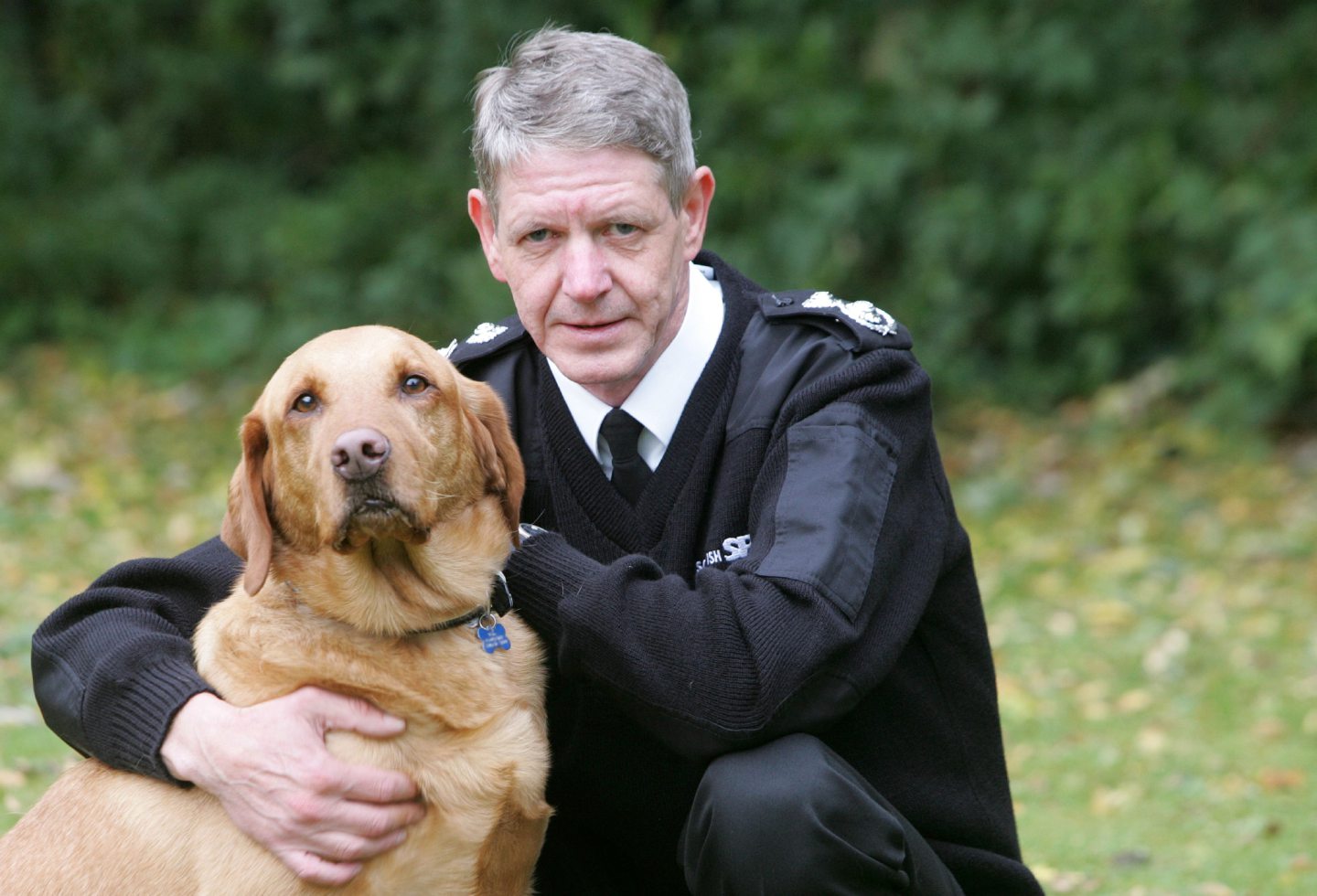A mysterious parakeet is on the loose in Inverness, sparking a bit of intrigue in locals.
The squawking of gulls and cooing of pigeons are commonly heard in any town or city centre across Scotland.
But take a trip to the Crown area of the Highland capital and you might find an altogether more exotic chirp, and maybe even a bit of chatter.
The presence of an Indian ring-necked parakeet has left people perplexed about how it got there.
Social media rumours suggest it’s an escaped pet.
No one has so far stepped forward to lay claim to the bird. But even if they do, it will not be an easy rescue mission.
That’s because the Scottish SPCA has warned that this parakeet will be “nearly impossible” to catch out in the open.
‘We have a lot of gulls around here and it seems to be having a conversation with them’
The bird has taken up residence in the trees surrounding Midmills Road, even visiting the local primary school.
Resident Liz MacDonald said: “I was looking out my kitchen window and there was this exotic animal on my bird feeder.
“I have no idea how it got there.”
Mrs MacDonald has said the bird now returns twice a day to nibble on sunflower seeds.
The parakeet seems rather tame, allowing her to get close enough to watch.
Mrs MacDonald added: “I did get in touch with the RSPB who said they have had reports of parakeets in Glasgow and Edinburgh but they had no reports of them this far north.
“We know when it is near because you can hear it. We have got lots of gulls around here and it seems to be having a conversation with them.
“I think when the weather starts deteriorating in autumn I might get back in touch with the SSPCA to see what is going to happen.
“It seems happy and healthy and is feeding fine though just now.”
Winter is coming
The Scottish Ornithologists Club say there have been no recorded sightings of wild parakeets in the Highlands.
Some have, however, been spotted in Aberdeenshire.
Highland recorder John Poyner said ring-necked parakeets have colonised much of England successfully as a self-sustaining population.
And they are slowly moving north.
Parakeets are known to use nest holes occupied by other native species and will damage fruit crops.
However, Mr Poyner feels they may well cope fine in the Inverness wilderness.
But he warned: “Winter may be an issue this far north for them.”
‘It can be so easy for them to slip out of an open window’
Scottish SPCA chief superintendent Mike Flynn said: “We do often receive calls about stray pet birds.
“It can be so easy for them to slip out of an open door or window by accident.
“Unfortunately, if a bird is healthy and able to fly it’s nearly impossible to catch it out in the open.
“If anyone is concerned about a stray parrot they can try to tempt the bird with food and attempt to contain it in a cage or room until one of our rescue officers can attend.
“Please don’t try to grab stray birds as they are very delicate animals and can be easily injured.”
What should I do if I am no longer able to care for my parakeet?
Mr Flynn urged parakeet owners to refrain from releasing the birds into the wild.
He added: “While there have been reports of feral parakeets living wild in the UK, we would discourage anyone who can no longer care for a bird from simply trying to set the animal free.
“Most pet parrots have been born and raised in captivity and are not equipped with the skills to survive in the wild or designed to survive in the Scottish climate.
“This is not the correct process to follow if anyone wishes to give up an animal they can no longer care for.
“If anyone is struggling to care for a pet, or is worried about a stray bird, they can call our confidential helpline on 03000 999 999.”



